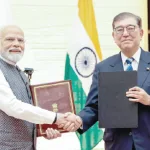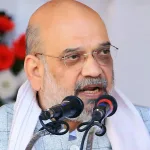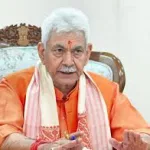As winter is fast approaching, people in Kashmir relish dried vegetables, preserved through traditional means. However, a group of 10 college girls from Wezar village of Baramulla in North Kashmir have started a unique initiative to dry vegetables on electric machines, which has received an encouraging response from the locals.
Two months ago, three college-going girls Rifat, Rafiyah and Tabasum Jan were looking for a part-time job. A local NGO ‘Human Aid Society Baramulla’ under the Arnimal Women’s Empowerment Programme’ set up their vegetable dehydration unit in the village. They engaged them along with 7 other women to run the same.
It is the peak of vegetable harvest in Kashmir villages and they are busy drying the local produce which is preferred by locals during the winter months.
Rifat Jan, a college student told Rising Kashmir that their group is working on the unit for the past two months. The unit has attracted the attention of the local populace who used to dry the vegetables by the traditional methods, she said.
“It is the initiative by the NGO Human Aid Society Baramulla’ – it will create job opportunities in the village. The electric machine helps to dry the vegetables very quickly as compared to traditional methods,” Rifat said.
Over the past two months, locals of the area have been coming to the unit with their vegetable produce, which is mostly eaten during winter as Kashmir remains usually cut off due to heavy snowfall and highway closures.
For Saleema Bano, who is a widow, says this unit has become a hope for employment as she is now fully trained in vegetable drying, packing, and branding its products.
“Before this unit was set up, I was sitting idle at home and now I am hopeful that after completion of this training course, I will not be dependent on others for employment,” she said.
Bano says vegetable drying is one of the oldest methods of food preservation, though methods for drying food have become sophisticated over time.
“We dry onion, garlic, brinjal, pumpkins, cabbage, tomatoes, turnip, fenugreek (Meath), and other vegetables. Fruit can also be dried in this unit. After peeling or chopping them, they are put on trays and are mostly removed after 18-24 hours.
Chilies are the most preferred choice for Kashmiri women. They dry them first and then grind them.
Another girl, Tabasum Jan said they dry all kinds of vegetables, make fruit juice, apple jam, Kashmiri pickles, tamattoo juice, and also are trained to grind chilies and other species.
“In the initial days it was difficult to handle it but today all members are trained. We are going to improve further,” she said.
Tabasum says they charge 20-35 rupees for a kilogram of vegetables and 30-35 rupees for grinding a kg of chilies.
“We are getting positive responses from the people in the area and we are hopeful that in near future, our group will become a self-sustaining unit,” she added.
The unit is running on electricity and for backup, they have also set up a generator.
Chairman of NGO, Bashir Ahmad Mir said they have set up three such units in north Kashmir and more than 30 women were employed under a self-help group.
He said the women empowerment program, the initiative has been taken by Human Aid Welfare under Sustenance through Affordable Farming and Entrepreneurship (SAFE).
“Our organization is focusing on empowering women and we have set up three such units in north Kashmir’s Baramulla district. The aim is to make them independent and skilled,” he said.
Mir said each girl working in these units has got basic training from Sheri-e-Kashmir University of Agricultural Sciences Kashmir (SKAUST-K), Sopore Campus.
“After six months, these girls have to manage the unit and get raw material on their own under a self-help programme and later share the profit of drying vegetables,” he said.
Mir says they want to bring a positive revolution in Kashmir so that women will be empowered like in other parts of the world.
“Around 11-15 lakh rupees are invested in one unit and we are hopeful that we will get funds for setting up more projects in other parts of Kashmir,” he said.





